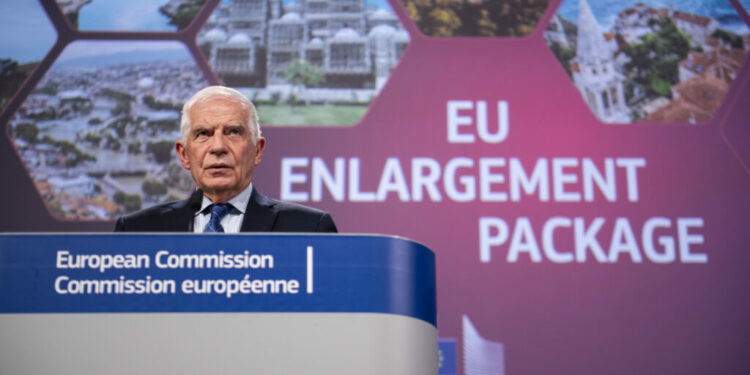Regarding Podgorica, the EU document stresses that, overall, Montenegro “has accelerated its preparations for EU membership and has worked effectively.” According to the European Commission, the Montenegrin authorities’ political commitment to the strategic goal of European integration has been “a constant priority for the country.” Accession negotiations with Montenegro are over a decade old and opened in June 2012. To date, 33 negotiating chapters have been opened out of 35, of which three have been provisionally closed.
Among the Balkans finally advancing toward the EU, is Albania, who has recently opened the negotiations on the fundamentals cluster, covering “Judiciary and Fundamental Rights, Justice, Freedom and Security, Public Procurement, Statistics, Financial Control.” The European Commission’s assessment is that it is crucial for Tirana to “further intensify the pace of EU-oriented reforms, in particular regarding the rule of law.” The goal is to consolidate achievements “in law enforcement, in effectively combating corruption and organized crime, and in promoting fundamental rights, including media freedom, property rights, and minorities.”
In the case of Northern Macedonia, whose accession path was recently unbundled from that of Albania to allow Tirana to move forward, the EU reiterates the importance of “implementing in good faith” existing bilateral agreements with neighbouring countries, primarily Greece and Bulgaria, which are holding back Skopje’s path to Brussels. The small Balkan state needs to accelerate efforts on “fighting corruption and organized crime,” as well as “strengthening confidence in the judiciary.” In any case, Skopje has proven itself “once again a reliable partner” in terms of its posture toward the war in Ukraine, “sending a strong signal of its strategic choice of EU membership.”
Bosnia and Herzegovina has also demonstrated “tangible achievements, including migration management, full alignment with the EU’s Common and Foreign Security Policy, and the passing of laws on the integrity of the judiciary, anti-money laundering and conflict of interest.” At this point, the European Commission is preparing the negotiating framework with a view to its adoption by the Council, subject to Sarajevo’s implementation of a set of recommendations outlined by the EU executive in October 2022. With Bosnia, however, some friction remains over anti-Moscow alignment: despite “good progress, implementation of restrictive measures remains a challenge due to political obstacles,” the Commission notes.
That leaves Moldova, which only a few days ago decided in a tight referendum to amend its national constitution to include EU accession as a goal. For EU Enlargement Commissioner Olivér Várhelyi, “Moldova has come a long way in recent years.” Despite “continued Russian interference and the impact of Russia’s war of aggression against Ukraine,” the document says. After the first intergovernmental conference in June 2024, Brussels assesses that “the analytical review of the EU acquis is proceeding smoothly.” This outcome makes the Commission hope to open negotiations with Ukraine’s neighbouring republic “as early as possible in 2025.”
English version by the Translation Service of Withub
Source link : https://www.eunews.it/en/2024/10/30/eu-enlargement-1-new-momentum-in-six-of-the-candidate-countries/
Author :
Publish date : 2024-10-30 18:22:00
Copyright for syndicated content belongs to the linked Source.


